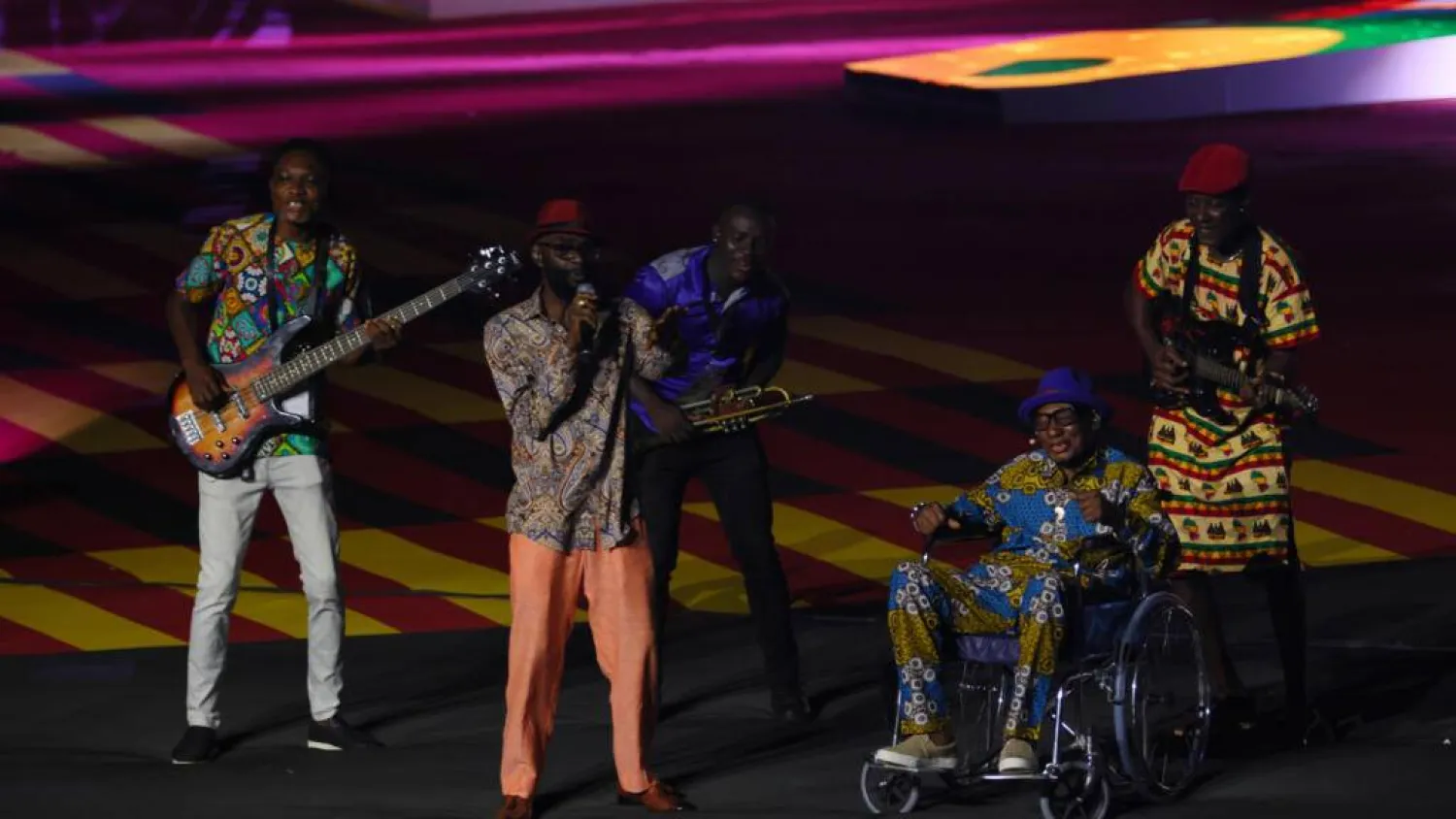No one was expecting it. Late last year, André 3000 released his debut solo album, "New Blue Sun," 18 years after his legendary rap group Outkast's last studio album, "Idlewild."
But "New Blue Sun" has "no bars," he jokes. It's a divergence from rap because "there was nothing I was liking enough to rap about, or I didn't feel it sounded fresh. I'm not about to serve you un-fresh (expletive.)"
Instead, he offered up a six-track instrumental album of ambient alt-jazz — with special attention paid to the flute.
"The sound, that's how I got into it," he says of the instrument. "The portability, too. You can't tote around a piano and play in Starbucks."
He's also invested in the flute's history — like learning about Mayan flutes made from clay, a design he had re-created in cedarwood. "There’s all kinds of fables and, you know, indigenous stories that go along with playing the flute — playing like the birds or playing your heart like the wind — it kind of met (me) where I was in life," he says.
"Flutes — wind instruments in general — are the closest thing you get to actually hearing a human," he continues. "You're actually hearing the breath of a person."
"New Blue Sun" is a stunning collection, one that has earned André 3000 three new Grammy Award nominations: album of the year, alternative jazz, and instrumental composition. Those arrive exactly 25 years after the 1999 Grammys, where Outkast received their first nomination — for "Rosa Parks," from their third album, "Aquemini" — and 20 years after the group won album of the year for "Speakerboxxx/The Love Below."
"It matters because we all want to be acknowledged or recognized," André 3000 says of his new Grammy nominations. "It's a type of proof of connection, in some type of way ... especially with the Grammys, because it's voted on by a committee of musicians and people in the industry."
He's a bit surprised by the attention, too, given the type of album he created. "We have no singles on the radio, not even singles that are hot in the street," he says. "When you're sitting next to Beyoncé and Taylor Swift, these are highly, hugely popular music artists, I'm satisfied just because of that ... we won just to be a part of the whole conversation."
He theorizes that it may be because popular music listening habits are broadening. "A lot of artists are just trying different things. Even, you know, the album that Beyoncé is nominated for, it’s not her normal thing," he says of her country-and-then-some record, "Cowboy Carter.We’re in this place where things are kind of shifting and moving."
For André 3000, "New Blue Sun" has allowed him to "feel like a whole new artist," but it is also an extension of who he's always been. "Being on the road with Outkast and picking up a bass clarinet at a pawn shop in New York and just sitting on the back of the bus playing with it — these things have been around," he says.
He's also always embraced "newness," as he puts it, experimenting creatively "even if it sounds non-masterful."
"Even producing for Outkast, I was just learning these instruments. If I ... put my hands down and play ‘Ms. Jackson,’ I'm not knowing what I'm playing. But I like it," he says.
As for a new Outkast album, "I never say never," he says. "But I can say that the older I get, I feel like that time has happened."









